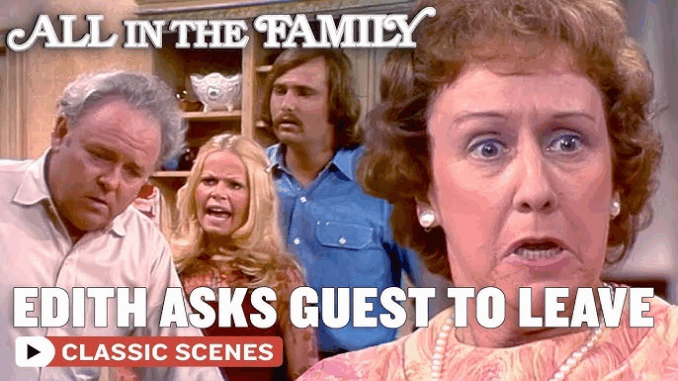
Before All in the Family, TV was safe. Too safe. Sitcoms were filled with perfect families, polite conversations, and laugh tracks that never asked questions. Then came Archie Bunker—and everything changed.
Premiering in 1971, All in the Family wasn’t just a show. It was a cultural earthquake, a rude awakening that America didn’t know it needed. For the first time ever, millions of viewers watched a blue-collar father openly rant about race, religion, gender roles, and war—while seated in a worn-out armchair, beer in hand.
And America couldn’t look away.
Archie Bunker, played by the brilliant Carroll O’Connor, was equal parts offensive and oddly relatable. He was your uncle at Thanksgiving, your neighbor down the street—the man who said all the things polite society pretended not to think. But here’s the twist: All in the Family didn’t just expose prejudice. It challenged it, episode after episode.
Each week, the show tackled the issues tearing the country apart—Vietnam, civil rights, feminism, homosexuality—not with sermons, but with sarcasm, laughter, and awkward silences that said more than words ever could. Viewers didn’t just laugh—they squirmed.
And that was the point.
The show’s creator, Norman Lear, wasn’t trying to make Archie Bunker a hero. He was holding up a mirror to America’s living rooms. And the reflection? Raw, honest, and often uncomfortable.
The result? All in the Family became the #1 show in America for five straight years, a feat unmatched in modern television. It sparked dinner table debates, political discussions, and even outrage. Conservative groups tried to get it banned. Critics accused it of going “too far.” But Lear had only one response: “If you’re not offending someone, you’re not telling the truth.”
More than 50 years later, the ripple effect of All in the Family is still being felt. It laid the groundwork for modern satirical hits like The Daily Show, Family Guy, and South Park. It showed the world that comedy wasn’t just entertainment—it was weaponized truth.
In a world drowning in political correctness and digital echo chambers, All in the Family remains a timeless reminder: sometimes, the only way to wake people up… is to make them laugh until it hurts.